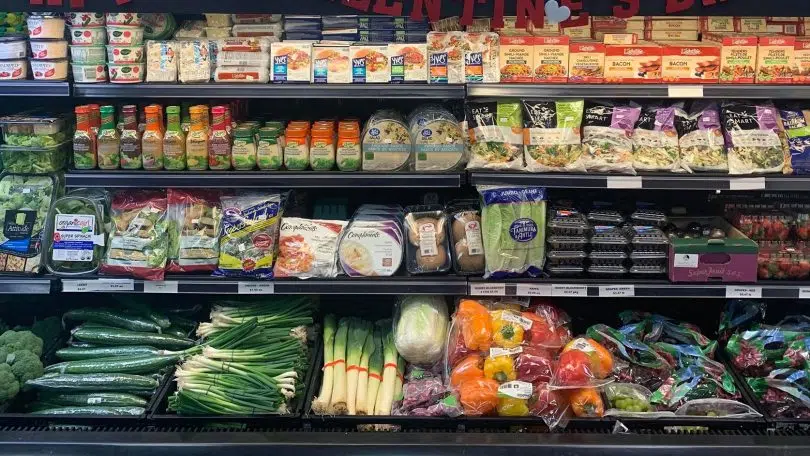Sean Fillmore, the owner of the east side grocery store On The Vine, is on the job 24 hours a day as he changes how he does business daily to mitigate the spread of COVID-19 force companies to adapt overnight.
“I’m sleeping at my store, making sure at night time we don’t have any problems, and day time we’re set up and ready to go,” he said. “I’m making rules on a daily [basis] here, and either building them up or cancelling them. I’m contradicting myself because the platform has changed. The game has changed.”
Starting March 16, the shop dedicated it’s first two opening hours (8-10 a.m.) to seniors and persons with disabilities so they’re exposed to less risk. On The Vine, located at 1350 Hickey Rd., also started offering free delivery for seniors for purchases of $50 and more.
Initially, it had only offered phone orders for delivery and pick-up options. But since Saturday, it has also launched an online service for a minimum order of $25.
“We’re putting a big, big push on the delivery side of things. As this thing unfolds, we’re definitely seeing the benefits of home delivery or pick up at the door,” said Fillmore.
All online and phone orders are delivered the next day, at a reduced fee of $5 within the city of Saint John, $10 for the outskirts and $15 for the Grand Bay-Westfield and Hampton areas. Fillmore’s trying to get more areas covered as well.
“We’ve moved to working with a couple of different delivery companies because we’re scrambling to get the needs met. So they’ve reduced their rate,” he said. “We’re trying to do what we can there to make sure all the stuff is able to get to people.”
While On the Vine didn’t have the volume to launch an online service before, the business already had phone orders for delivery in place before the pandemic hit. Most of the take-up was from seniors who don’t have vehicles or don’t want to go out.
But Fillmore says now, delivery services also help lower the possible exposure of his 41 employees, as well as customers, to coronavirus. Administrative staff are already working off-site, and manufacturing staff – those who prepare meat, among other things – were moved to night shift to cut public exposure.
“We’re going to every extreme that we can here with sanitizing things, all the staff wearing gloves, [sneeze guard] being built for our cashiers…so that people can walk up the cash and our cashiers won’t end up getting sick,” he said.
But even as those sneeze guards are being built, Fillmore is planning to close the front door and move to delivery service only.
“At the end of it, it’s not going to be a food shortage that slows this whole process down or end up closing the grocery store, it’ll be staff shortage,” he said. “Once one person [gets sick] then the next person, it’ll only be a matter of time before we don’t have anyone to cut meat…and we have to close the doors.”
Losing essential staff members would make the business even tougher as foot traffic remains strong and backdoor traffic is 10 times the usual. He says it also doesn’t feel morally right to keep the doors open.
“Just watching how people come in and congregate, and not everybody’s playing by the rules, my moral constitution’s not going to let me put my staff in danger,” he added. “If I continue having customers come through our doors and passing through and touching stuff, it’s not me being part of the solution.”
“Wednesday is going to be our last day. And we’re just going to do the big push on delivery,” he said.
Fillmore hadn’t planned to make delivery a larger part of his business than it already is. But, there are so many unknowns.
“It’s hard to think of the future right now, right now we’re worried about today because tomorrow is a different day and it comes with a different set of rules,” he said.
For now, Fillmore is concerned about safety and keeping customers fed.
“It’s got nothing to do with money now, it all has to do with making sure people are comfortable and understanding that they can get fed. Stay inside so we can keep our people healthy and keep you guys fed.”




